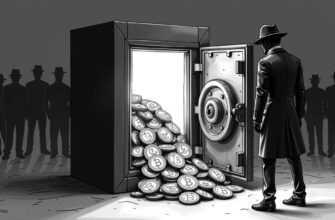OpenSea is making waves with its upcoming platform upgrade, and it could be a game changer for the NFT ecosystem. As the NFT market struggles to find its footing, OpenSea’s bold move aims to incorporate SocialFi and shared ownership models, potentially reshaping decentralized betting platforms. This article delves into how these features could boost transparency, community involvement, and user interaction while also examining the challenges that come with them.
OpenSea’s Bold Move Amid Market Challenges
OpenSea, the largest NFT marketplace out there, is preparing for a major overhaul of its platform this December. This decision comes at a time when the NFT market is experiencing a significant downturn—trading volumes and revenues have dropped sharply since the peak in 2021. Devin Finzer, co-founder and CEO of OpenSea, announced this upgrade in a recent blog post. He emphasized that to foster innovation effectively, they needed to reimagine their platform from scratch.
The excitement among users is palpable as many speculate about what new features might be included. Some are guessing account abstraction could be on the table; others think memecoin trading or minting might make an appearance. Whatever it is, one thing seems clear: if done right, this upgrade could enhance user experience and engagement significantly.
The Intersection of SocialFi and Decentralized Betting Platforms
SocialFi—essentially social media powered by decentralized finance—is likely going to play a pivotal role in shaping future decentralized betting platforms. These platforms utilize blockchain technology to operate on decentralized networks where control isn’t held by any single entity but distributed among users instead. This decentralization can empower users in their betting activities through structures like decentralized autonomous organizations (DAOs).
Imagine a betting platform where your participation earns you crypto tokens or NFTs that you can use for tipping or even voting on governance matters within the platform. Not only does this model increase user engagement; it also creates an ecosystem where everyone has a stake.
Navigating Regulatory Waters: The Case of OpenSea
However, as with all things crypto-related, there are challenges—especially regulatory ones. OpenSea finds itself under scrutiny from the SEC after receiving a Wells notice based on allegations that NFTs traded on its platform may qualify as securities. If the SEC succeeds in classifying them as such, it would impose heavy regulations that could stifle innovation and hurt creators.
Devin Finzer has pointed out that such classifications would be detrimental not just to marketplaces but also to artists and collectors alike—especially smaller creators who may lack resources for compliance. In response to potential fallout from its ongoing legal battles, OpenSea has even set aside $5 million fund to help cover legal costs for those facing similar issues.
Summary: Is It All Worth It?
So where does this leave us? OpenSea’s impending upgrade could have far-reaching implications for peer-to-peer and social betting platforms alike if implemented successfully. By integrating elements like SocialFi and shared ownership via NFTs into their ecosystems these platforms might become more transparent engaging—and yes—decentralized than ever before.
Yet one can’t help but wonder whether all these innovations will come at too high a cost given current regulatory climates surrounding cryptocurrencies? Only time will tell if we’re witnessing birth of something revolutionary—or just another fleeting trend!








